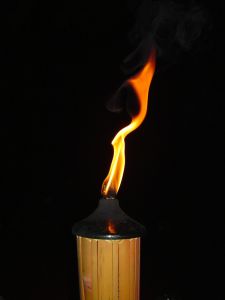Old Age

My Nan is moving nursing homes. She’s 85 years old, and has been living on government benefits for decades. After my Dad died, I became largely responsible for managing her affairs, and in the process have learned that, as the adage goes, old age is not always kind.
Sometimes it is! Sometimes old age is a liberation, a freedom, a chance at last to live the life you were too busy to be living before, an opportunity to go out and have fun, to spend your heard-earned wealth, and make merry. Sometimes old age is freedom, for we spend our lives desperately toiling to be ready for it, and when it comes then damnit, we may as well make the most of this new and interesting passage of our lives!
However, while this is the dream, and can be lived, so often – too often – old age is cruel. Sit for only a few minutes in the lounge of the nursing home where my Gran is moving, and the truth of it emerges.
The freedom to live a good, merry old age is, let’s face it, almost entirely dependent on money. On the money to buy comfort, freedom – both of which cost a lot more money than that which is simply necessary to ticking over on a day-to-day basis. Poverty haunts the old. A life lived on only a state pension is a life lived at the whim of a government to whom you are merely a line in a box, a number on a page. Money brings freedom to choose your fate, and too few of the old have money to choose. Anxiety and discomfort haunt the aging poor, and with this comes a development of dependency on the young, who must turn round and support their elders wherever they can, with whatever they have. Which, all too often, is not enough, for here is the dilemma – the young must live their lives in turn, as the old once did, and where do you find that line, between doing right by your elders and doing right by the youth? I don’t know. I doubt there is any universal formula to find the same.
Old age is frustrating. An assumption that anyone old cannot be functional seems to haunt large parts of society, and so even the finest minds are treated by unknowing officials and strangers as if they can’t tie their own shoelaces. It’s not merely embarrassing, it’s downright humiliating, particularly since age is so often dependent. The price of getting disability allowance or pension benefits is not only a great deal of national insurance paid when young, but the ritual humiliation that is the endless paperwork, doled out by suspicious strangers who will ask if you’re quite sure you know how old you are really?
And when you’re poor, and when you’re in need? The government has many a care home on its books, ranging from the pleasant, vibrant and comfortable to great institutional wards that stink of disinfectant and hand lotion, where the inmates sit for hours a day in front of the TV, lost, quiet, and alone, and the staff shuffle around with water in plastic cups and a menu of cold baked beans and undercooked chicken for dinner.
Age brings physical decline. Even the healthiest of bodies will decay. Physical pain destroys lives. Doctors are afraid to treat the old for the simple reason that hearts are weaker, blood pressure is higher, bones are crumbling and what could have been a simple operation when you’re 35, is now a life-threatening operation when you’re 80. It’s all very well saying ‘we took the risk because the patient’s quality of life was untenable’, but when the doctor is marched up before the surgical board and asked to explain why the patient died on their table, even those very true words become hollow in the medic’s mouths. And so, out of fear of causing harm, yes, but also fear of being seen to even risk causing harm, the old are neglected by the medical establishment, unless, again, they have the wealth to buy their way out of pain.
And more – pain collapses the mind. A long-term, nagging, constant pain can grow to fill your whole world. It hinders mobility, shrinks horizons, shortens tempers, slashes concentration and before long, the world you knew has reduced to the room where you suffer, the journey you cannot make, the fuzz of drugs and distress you cannot think through. It brings yet more dependency – dependency on those who feed you, water you, bring you shopping, help you up, help you down. It brings a breakdown in independence, in pride; bed pans and someone sponging you down in the shower. And where your world was once big and bright and wide, now it is small, and crumpled, and full of sharpened edges.
Age brings disease. Sometimes it’s slow, physical disease. Sometimes it’s mental disease. Dementia is so cruel, mental decline is cruel. Cruel to those who have it, and cruel to those who live with those who have it. Sat in the lounge of the nursing home my Gran is moving too, I listened to a conversation between a son and his mother; he trying to convince her to eat, she refusing. “I don’t want it. I don’t want it. It’s horrid, I don’t want it,” came her voice, and there was within it an eight year old’s pout, a child’s stubbornness, battering against her son as he tried to fight the anger rising in his tones as he exclaimed, “You must eat, Ma, you must eat.”
Then, almost as a game, he asked: “How old am I?”
“I don’t know,” she replied, not with anger, or frustration, but a simple statement of fact. “I don’t know how old you are.”
And again we ask; what do you do? What formula is there, what government decree, which declares ‘now, you may abandon your elders, because you cannot look after them and they cannot remember your name so hand them over elsewhere, and live your life, while they decline, unseen, forgotten, in some other place’ for this is the simple, cruel mathematics of the case. The young must be permitted to live, the old must be loved, and cared for, and what do you do when these two fundamental needs collide? Guilt dogs both old and young, for different reasons, attached to the same conundrum. And again, I don’t think anyone has an answer which is anything better than for finding, one individual at a time, the ‘most kind’ option going.
Sat again in the lounge, and here was the same story acted out. A woman, in her fifties at a pinch, leaving her mother, late eighties if she was a day, for a few weeks to stay at the nursing home.
“I don’t want to,” said her Mum.
“You have to Mum,” said her daughter. “You know we can’t look after you over Christmas, you need proper care.”
“But I don’t want to.”
“We talked about this – you know we can’t give you the care you need.”
“Yes, I know.”
“So you need to stay here for a few weeks, just until after Christmas.”
“But I don’t want to!”
I do not write this to say that all old age is like this: many a life is lived well and good up to the moment where it ends. But we shy as a society from admitting a few obvious truths: that the old can be a burden on the young, on the state, and that ‘burden’ is the word – emotionally, financially, thought and time. We also shy from admitting the other simple truth – that too often the young abandon their old, running away from the harsh truths of it and leaving those who raised us to diminish out of sight, out of mind, as if, somehow, old age is not a fate which awaits us all.





